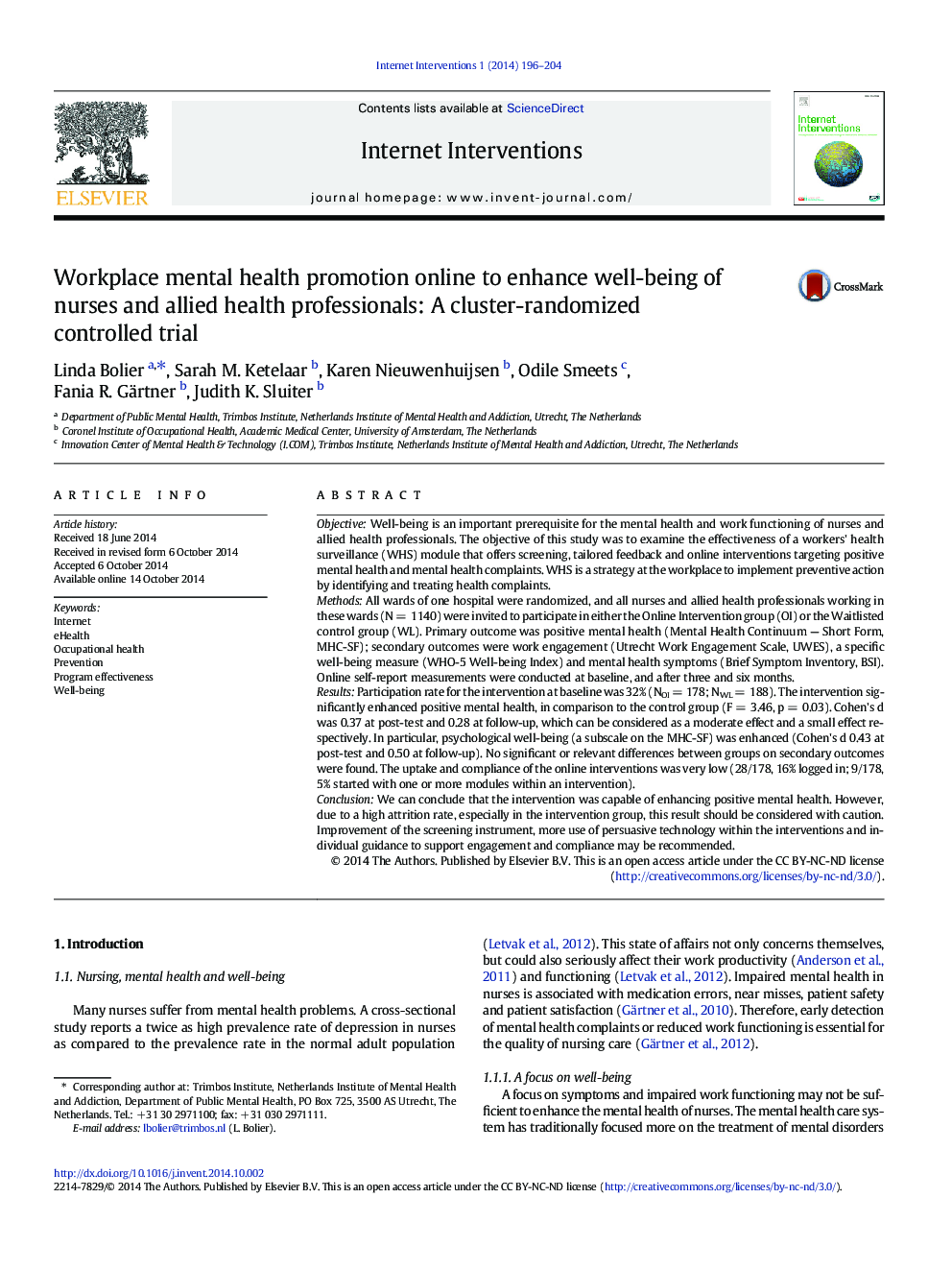| کد مقاله | کد نشریه | سال انتشار | مقاله انگلیسی | نسخه تمام متن |
|---|---|---|---|---|
| 555496 | 874103 | 2014 | 9 صفحه PDF | دانلود رایگان |
• A Workers' Health Surveillance (WHS) module containing screening, feedback and a tailored choice of online interventions was developed for nurses and allied health professionals.
• The WHS module was effective in enhancing positive mental health.
• The WHS module was not effective in reducing mental health complaints.
• The uptake and compliance of the online interventions was very low.
• Improvement of the WHS module is necessary before widespread dissemination is warranted.
ObjectiveWell-being is an important prerequisite for the mental health and work functioning of nurses and allied health professionals. The objective of this study was to examine the effectiveness of a workers' health surveillance (WHS) module that offers screening, tailored feedback and online interventions targeting positive mental health and mental health complaints. WHS is a strategy at the workplace to implement preventive action by identifying and treating health complaints.MethodsAll wards of one hospital were randomized, and all nurses and allied health professionals working in these wards (N = 1140) were invited to participate in either the Online Intervention group (OI) or the Waitlisted control group (WL). Primary outcome was positive mental health (Mental Health Continuum — Short Form, MHC-SF); secondary outcomes were work engagement (Utrecht Work Engagement Scale, UWES), a specific well-being measure (WHO-5 Well-being Index) and mental health symptoms (Brief Symptom Inventory, BSI). Online self-report measurements were conducted at baseline, and after three and six months.ResultsParticipation rate for the intervention at baseline was 32% (NOI = 178; NWL = 188). The intervention significantly enhanced positive mental health, in comparison to the control group (F = 3.46, p = 0.03). Cohen's d was 0.37 at post-test and 0.28 at follow-up, which can be considered as a moderate effect and a small effect respectively. In particular, psychological well-being (a subscale on the MHC-SF) was enhanced (Cohen's d 0.43 at post-test and 0.50 at follow-up). No significant or relevant differences between groups on secondary outcomes were found. The uptake and compliance of the online interventions was very low (28/178, 16% logged in; 9/178, 5% started with one or more modules within an intervention).ConclusionWe can conclude that the intervention was capable of enhancing positive mental health. However, due to a high attrition rate, especially in the intervention group, this result should be considered with caution. Improvement of the screening instrument, more use of persuasive technology within the interventions and individual guidance to support engagement and compliance may be recommended.
Journal: Internet Interventions - Volume 1, Issue 4, October 2014, Pages 196–204
